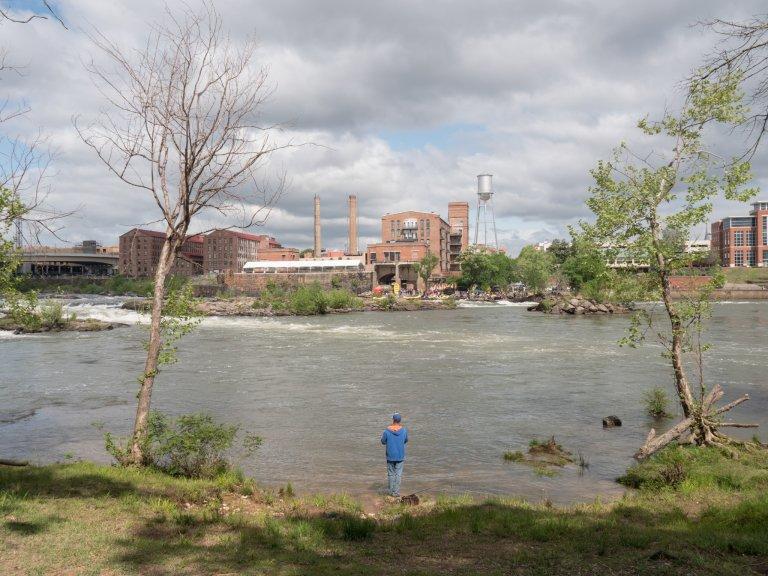
Caption
The segment of the Chattahoochee River that runs through Columbus is a popular spot for whitewater rafting and fishing. The Columbus Water Work is challenging new state requirements meant to protect water quality. / Chattahoochee Riverkeeper
Credit: Henry Jacobs

